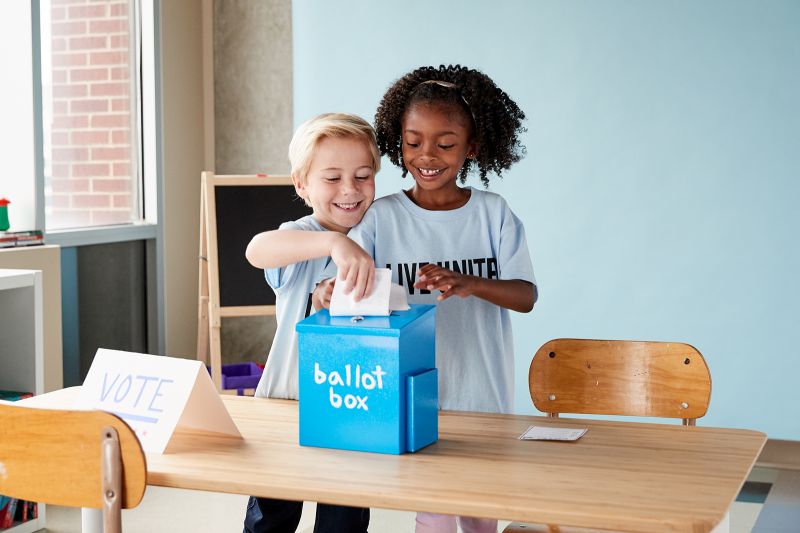Everything You Need to Know About the March 1 Primary Election

Voting is one of the simplest, yet most powerful duties we as citizens hold. It’s important for all of us to be informed voters. Many people only vote during presidential election cycles; however, the power is truly with the people—every election.
Your vote has the power to drive positive change on the big issues right here in North Texas, including our key focus areas of education, income and health. By voting, you are helping determine the elected officials who will prioritize how government funding will be allocated and make decisions that impact your daily life and the long-term viability of our community, like how our schools are run.
This year, Primary Election Day is Tuesday, March 1. You can participate in early voting from Monday, Feb. 14 through Friday, Feb. 25. If you plan to vote by mail, please note there are new rules that may apply to you this year (see below).
Here’s everything you need to know to vote:
What’s On the Ballot
There is a long list of offices on the ballot, including Texas governor, attorney general, agriculture commissioner, state senator, state representative, county commissioner and more .
In Texas, the Republican and Democratic parties hold primary elections to select a single nominee for each office. To win the Democratic or Republican nomination, a candidate must get more than 50% of the primary vote. If none of the candidates gets 50% of the vote, then a runoff will be held on May 7. In November, voters will select between each party’s nominee, and the winner will become the officeholder.
Texas is an open primary state, which means eligible Texas voters can cast a ballot in the Republican or Democratic party primary election (but not both).
To create a customized sample ballot, visit Vote411.org.
Key Dates
Feb. 14-25: Early voting (in-person). Dates and hours vary depending on where you live. Check your county’s election department website—Dallas, Collin, Rockwallor Denton—for dates, hours and locations.
Feb. 18: Last day to apply for ballot by mail (must be received, not postmarked, by this day).
March 1: Election Day and your last chance to vote.
Please note: The deadline to register to vote in the March 1 election has passed; it was January 31.
Other Things to Know
Bring a photo ID: You must present one of the seven acceptable forms of photo identification before you can vote:
- Texas driver’s license
- Texas election ID certificate
- Texas personal ID card
- Texas handgun license
- U.S. citizenship certificate with photo
- U.S. military ID card with photo
- U.S. passport (book or card)
Your voter registration card is not mandatory to vote, but bring it if you have it. If your name is spelled differently on the official list than on your ID, showing your registration card may resolve the issue.
Voting locations: Polling locations may be different for early voting and Election Day, so visit your county’s election website—Dallas, Collin, Rockwall or Denton—to make sure you’re headed to the right location.
Be an educated voter: Save yourself time at the polls by being prepared. Do your research on the candidates and the responsibilities of each office before getting to the voting machine. You can bring a list of how you want to vote if it’s not a partisan flyer. To learn more about the candidates, visit Vote411.org.
Encourage your network: Make a plan to vote, and invite your neighbors and friends to go vote with you.
Vote by mail: To be eligible to vote early by mail in Texas, you must meet at least one of the following criteria:
- Be 65 years old or older
- Be disabled
- Be out of the county on election day and during the period for early voting by personal appearance
- Be expected to give birth within three weeks before or after Election Day
- Be confined in jail, but otherwise eligible
Instructions on how to apply for a mail-in ballot and how to track your completed ballot can be found on the Texas Secretary of State’s website. The mail-in ballot application has changed so make sure you thoroughly read the instructions.
Tags

Advocate with Us
Join us as we advocate for policies that will improve access to education, income and health in North Texas. Click below to learn more about how we advocate and sign up for our Advocacy Alerts.


